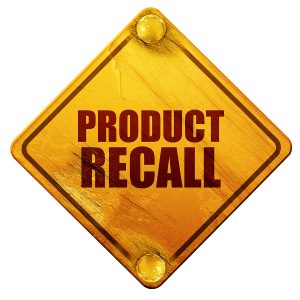Whom Should You Sue For Product Liability?
 Michael Babboni
Recalls
Are you the victim of a defective product? If so, filing a claim against the company is essential. However, you can sue more than the company you purchased the product from. You should look into the chain of distribution to ensure that every party involved will be held liable and you will get the compensation that you deserve.
Michael Babboni
Recalls
Are you the victim of a defective product? If so, filing a claim against the company is essential. However, you can sue more than the company you purchased the product from. You should look into the chain of distribution to ensure that every party involved will be held liable and you will get the compensation that you deserve.Manufacturer
The chain of distribution begins with the manufacturer of the product. If the defective product is part of a larger product, you must include both the manufacturer of the faulty part and the manufacturer of the whole product. An example would be if you got into a car accident due to a battery that exploded, you would file a product liability claim against the car manufacturer and the battery manufacturer.
Another thing to keep in mind is to ensure that you include additional parties involved in the design, manufacturing, or marketing of the product that might be linked to the defect.
Retailer
Even if the retailer is not responsible for the product defect, they may still be liable for selling a defective item. Keep in mind that any party involved in the chain of distribution must be named as a defendant in your lawsuit.
When it comes to suing the retailer, you don’t have to be the buyer of the defective product. For example, if you consumed a product given to you by a friend and got sick from it, you can still sue the retailer. Conversely, you also don’t have to be the product user—if a defective product you bought injured someone else who used it, you could still file a defective product claim.
Wholesale Distributor
Between the manufacturer and retailer, there may be several wholesalers or distributors, which are part of the chain of distribution. Therefore, this makes them potentially liable for the defective product.
What If You Encounter Foreign Defendants?
You may find that some companies in your chain of distribution are foreign corporations or companies. There’s no need to worry, though. You can still sue them simply because foreign companies are subject to the jurisdiction of the courts where they do business.
What If The Company Is A Corporation?
The thing with corporations is that they can always change, and they often go through mergers with or acquisitions by other companies as well as reorganizations, spin-offs, and more. Don’t let corporations intimidate you because regardless of their size, successor companies may inherit the liability for their predecessors’ participation in the chain of distribution of a defective product.
You might think that the entire process is time-consuming, and it is. However, it is essential to track down every party involved when you are about to file for a defective product claim.
That is why it’s vital to hire a personal injury attorney to help you with your defective product claim. What you need to do is to find a law firm that has an excellent reputation when it comes to product liability claims. Do your research, ask your colleagues, and read reviews online to help you find the perfect firm that will suit your needs.
From there, you can have someone represent you legally. That way, you get a better chance to win a case against the companies involved in the chain of distribution.
